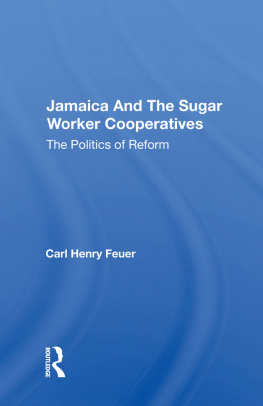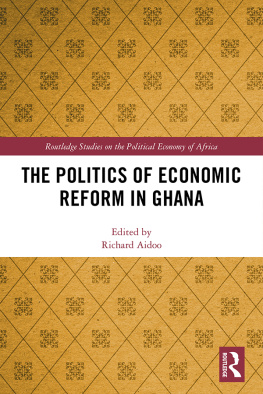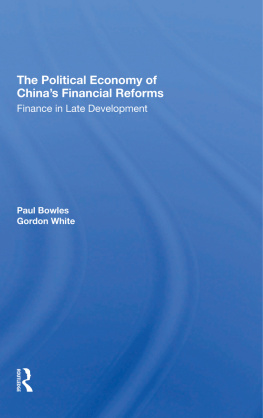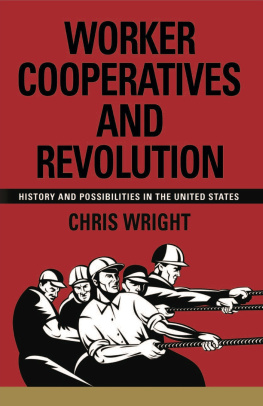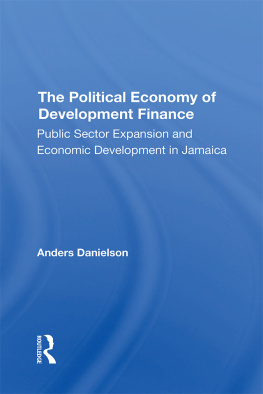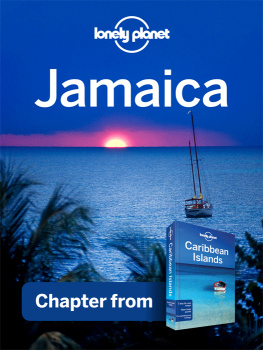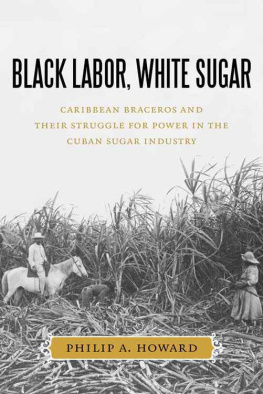Jamaica and the Sugar Worker Cooperatives
Westview Replica Editions
The concept of Westview Replica Editions is a response to the continuing crisis in academic and informational publishing. Library budgets for books have been severely curtailed. Ever larger portions of general library budgets are being diverted from the purchase of books and used for data banks, computers, micromedia, and other methods of information retrieval. Interlibrary loan structures further reduce the edition sizes required to satisfy the needs of the scholarly community. Economic pressures on the university presses and the few private scholarly publishing companies have severely limited the capacity of the industry to properly serve the academic and research communities. As a result, many manuscripts dealing with important subjects, often representing the highest level of scholarship, are no longer economically viable publishing projects--or, if accepted for publication, are typically subject to lead times ranging from one to three years.
Westview Replica Editions are our practical solution to the problem. We accept a manuscript in camera ready form, typed according to our specifications, and move it immediately into the production process. As always, the selection criteria include the importance of the subject, the work's contribution to scholarship, and its insight, originality of thought, and excellence of exposition. The responsibility for editing and proofreading lies with the author or sponsoring institution. We prepare chapter headings and display pages, file for copyright, and obtain Library of Congress Cataloging in Publication Data. A detailed manual contains simple instructions for preparing the final typescript, and our editorial staff is always available to answer questions.
The end result is a book printed on acid-free paper and bound in sturdy library-quality soft covers. We manufacture these books ourselves using equipment that does not require a lengthy make-ready process and that allows us to publish first editions of 300 to 600 copies and to reprint even smaller quantities as needed. Thus, we can produce Replica Editions quickly and can keep even very specialized books in print as long as there is a demand for them.
About the Book and Author
Jamaica and the Sugar Worker Cooperatives: The Politics of Reform
Carl Henry Feuer
Between 1974 and 1977, as part of a wider attempt by Prime Minister Michael Manley's regime to carry out a democratic reformist strategy of development, the three largest sugar estates in Jamaica were converted into worker-managed farms. Within a few years, however, the cooperative program was in disarray as the farms faced economic setbacks and as political conflicts developed among the sugar workers, local authorities, and the government.
Drawing on his extensive field research in Jamaica, Dr. Feuer traces the development and decline of the cooperative system and discusses the implications for the possibility of democratic reform. In his view, the logic of the cooperativization process conflicted with the priorities of the middle class, which continued to dominate the Jamaican economy. As a result, the reforms were never firmly rooted in a political coalition with the resources to carry them out. In light of the Jamaican experience, Dr. Feuer considers such questions as: What are the obstacles a nonrevolutionary regime is likely to face in an effort to help the poor? How feasible is it to mobilize the requisite political and administrative resources and neutralize the inherent constraints to reform?
Carl Henry Feuer is assistant professor of political science at Cortland College, State University of New York.
Jamaica and the Sugar Worker Cooperatives
The Politics of Reform
Carl Henry Feuer
To My Parents,
Leo Feuer and Fay E. Feuer
First published 1984 by Westview Press, Inc.
Published 2018 by Routledge
52 Vanderbilt Avenue, New York, NY 10017
2 Park Square, Milton Park, Abingdon, Oxon OX14 4RN
Routledge is an imprint of the Taylor & Francis Group, an informa business
Copyright 1984 Taylor & Francis
All rights reserved. No part of this book may be reprinted or reproduced or utilised in any form or by any electronic, mechanical, or other means, now known or hereafter invented, including photocopying and recording, or in any information storage or retrieval system, without permission in writing from the publishers.
Notice:
Product or corporate names may be trademarks or registered trademarks, and are used only for identification and explanation without intent to infringe.
Library of Congress Cataloging in Publication Data
Feuer, Carl Henry
Jamaica and the sugar worker cooperatives.
(A Westview replica edition)
1. Agriculture, Cooperative--Jamaica. 2. Sugar workers--Jamaica. 3. Sugar trade--Jamaica. I. Title.
HD1486.J25F48 1984 334'.683'097292 84-15202
ISBN 13: 978-0-367-01731-6 (hbk)
Until 1969, Jamaica's unit of currency was the Jamaican pound. Subsequently it was the dollar. In the text all currency figures pertaining to Jamaica are given in Jamaican dollars, except for the pre-independence period when I follow Jamaican usage and quote figures in pounds, shillings and pence. The Jamaican dollar depreciated greatly in the 1970s, falling from U.S. $1.20 in 1969 to U.S. $1.10 in 1976 and then to a rate of exchange in 1979 of Ja. $1.00 = U.S. $0.57.
Many people contributed to this book. Robin Lee Whittlesey has lived with it as long as I have. Without her emotional support, it would have remained just a good thought. Many of the ideas and perspectives embodied here also owe their origin to her. And what if she had never interested me in Jamaica in the first place and done much of the initial spade work?
Norman Thomas Uphoff also deserves an award for his staying power. His influence occurs throughout. His constant encouragement and positive reinforcement were essential in getting the neophyte field worker over the inevitable humps of working in a strange country. Both Norman and Robin contributed an immense amount of time and effort toward making me a writer and this work readable.
Though less intensive, the contributions of many Jamaicans were essential. First and foremost were the sugar workers and others I encountered in Vere, particularly those at Morelands and Springfield cooperative farms. With unfailing courtesy and good humor, they put up with much over long months of field work. It is not exactly usual to have to confront a peripatetic, bearded, white American wherever you turn. There was no privacy for them, not even in the midst of the cane fields during the harvest; nor at meetings of the management committees, which were unfailingly open to my inspection. I will not try to list individually all the members of the sugar worker cooperatives or their staffs who were particularly informative and helpful. There were many. A special word of thanks, however, must be extended to Trevor Coleman, education officer with the cooperatives, and the staff of the Social Action Centre, in particular, Horace Levy, Joe Owens and Jim Schecher. Without their friendship and assistance it is unlikely this research could have ever been started, much less completed.

